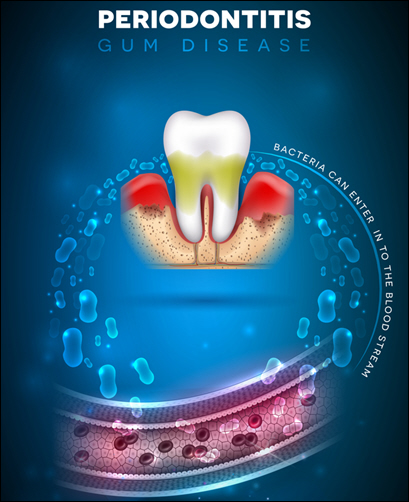The Impact of Diabetes on Oral Health: Protecting Your Smile
Diabetes affects more than just blood sugar levels—it impacts your entire body, including your oral health. High blood sugar levels create an environment where bacteria thrive, increasing the risk of gum disease, dry mouth, and slow healing after dental treatments. If you have diabetes, understanding its effects on your oral health and taking proactive steps can help you maintain a healthy, bright smile.
How Diabetes Affects Oral Health
 People with diabetes face a higher risk of gum disease, known as periodontal disease. High blood sugar levels feed oral bacteria, causing plaque to build up more quickly. If not removed through daily brushing and flossing, plaque can irritate the gums, leading to inflammation, redness, and even bleeding. Untreated gum disease can progress, damaging the bone that supports your teeth and leading to tooth loss.
People with diabetes face a higher risk of gum disease, known as periodontal disease. High blood sugar levels feed oral bacteria, causing plaque to build up more quickly. If not removed through daily brushing and flossing, plaque can irritate the gums, leading to inflammation, redness, and even bleeding. Untreated gum disease can progress, damaging the bone that supports your teeth and leading to tooth loss.
Dry mouth is another common problem for people with diabetes. High blood sugar levels can reduce saliva production, causing dry mouth and increasing the risk of cavities, infections, and discomfort. Saliva is essential for washing away food particles and bacteria, so when levels drop, your teeth become more vulnerable to decay.
Diabetes can also slow down healing, making it harder for your gums and tissues to recover after procedures like extractions, fillings, or deep cleanings. This delayed healing can increase the chance of infection, which may require additional care and monitoring.
Steps to Protect Your Oral Health with Diabetes
Managing diabetes effectively goes hand-in-hand with protecting your oral health. By practicing good oral hygiene, monitoring blood sugar levels, and staying consistent with dental visits, you can prevent or minimize many common dental issues.
- Maintain Consistent Blood Sugar Levels: Controlling blood sugar is crucial for your overall health and can help reduce the risk of gum disease and dry mouth. Monitor your blood sugar closely and work with your healthcare team to keep levels stable.
- Brush and Floss Daily: Brush your teeth twice a day with fluoride toothpaste and use a soft-bristled toothbrush. Daily flossing is essential for removing plaque between teeth and along the gumline, where gum disease often begins. These simple habits play a significant role in keeping your mouth free from harmful bacteria.
- Stay Hydrated: Drinking water helps combat dry mouth and washes away food particles and bacteria. Staying hydrated also helps stimulate saliva production, providing natural protection against cavities.
- Visit Your Dentist Regularly: Regular dental check-ups and cleanings allow your dentist to monitor any early signs of gum disease or other issues. Inform your dentist about your diabetes so they can tailor care to your needs and help manage any specific concerns.
- Quit Smoking: If you smoke, quitting can significantly improve your oral health. Smoking worsens gum disease, slows healing, and makes it harder to control blood sugar levels. Your dentist or doctor can offer resources to support you in quitting.
- Use Mouthwash for Extra Protection: Antibacterial mouthwash helps reduce bacteria in your mouth, providing an extra layer of protection against gum disease. Look for alcohol-free options to avoid further drying out your mouth.
Take Control of Your Smile’s Health
Diabetes may increase the risk of oral health issues, but with mindful care, you can protect your teeth and gums. By controlling blood sugar, practicing good oral hygiene, and visiting your dentist regularly, you can maintain a healthy smile and reduce the complications that diabetes can bring to your oral health. Your dentist is a valuable partner in managing your health, so don’t hesitate to discuss any questions or concerns with them—they’re here to help keep your smile bright and healthy, no matter your medical needs.

